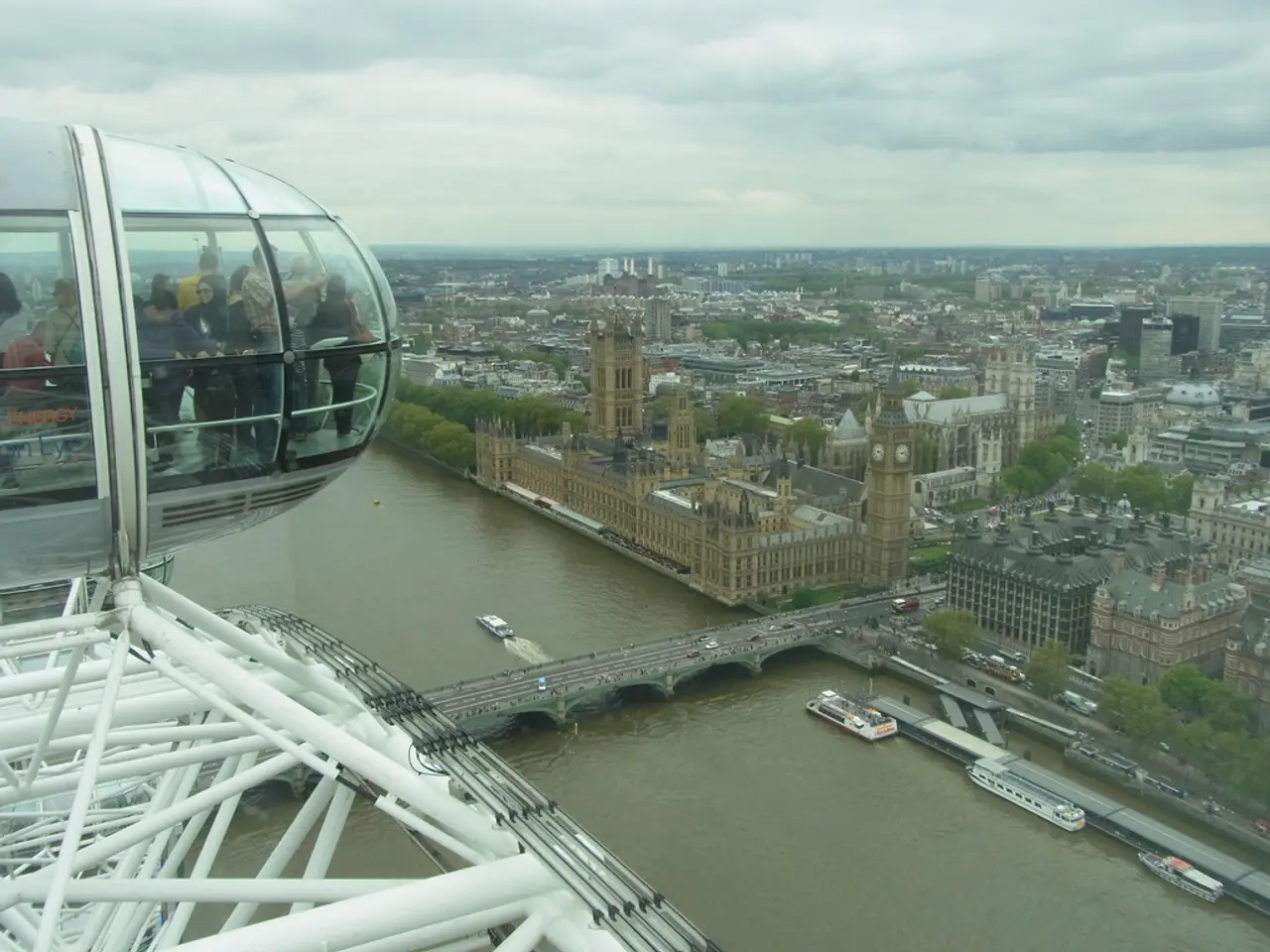Economist predicts stronger growth in London house prices compared to the rest of the UK
London House Prices: A Mixed Outlook for 2023
London's property market is showing signs of change, with the loosening of mortgage lending criteria and the relaxation of long-standing restrictions potentially giving house prices a boost. However, the future growth of London house prices remains a subject of debate among experts.
According to Tom Bill, head of UK residential research at Knight Frank, London house prices are expected to underperform the rest of the UK into next year. This prediction aligns with Knight Frank's forecast that London house prices will lag the national average in 2027, 2028, and 2029.
Capital Economics, on the other hand, believes that London house prices will outperform the rest of the country over the next few years, with a predicted 6.5% increase for 2023. However, no clear consensus among other experts for a 6.5% London house price increase in 2023 specifically exists. Many experts suggest lower growth or modest gains regionally.
Jeremy Leaf, a north London estate agent, believes that any increase in London house prices over the rest of the UK will be due to more settled economic conditions, improvements in affordability, and buying power. He expects higher price increases in more popular areas in London, particularly in the suburbs, due to demand for longer-term single-family houses.
However, Leaf also notes that there is over-supply in the flat market in London. This is reflected in the city's recent performance, with London house prices growing by just 1.4% over the past 12 months, according to the latest data. The average price of a London house currently stands at £532,449.
Knight Frank forecasts a 4% increase in UK house prices and 3% for Greater London next year, with a lower 2.5% for prime central London. These forecasts indicate a more moderate growth compared to Capital Economics' predicted 6.5% increase for 2023.
The North of England performed well, with a 5.5% increase in house prices. In fact, Northern Ireland had the best performance, with a 9.7% increase in house prices.
The underperformance of London house prices since 2016 can be attributed to factors such as slowing employment growth in London after the Brexit referendum, higher taxes for buy-to-let landlords, higher mortgage rates, and the freedom of remote work allowing households to move to cheaper locations.
Despite these challenges, London remains desirable to potential buyers due to its strong employment prospects. Any house price increases will depend on the specific area and type of property, with Leaf noting that London remains a desirable location for many buyers.
Ashley Webb, UK economist at Capital Economics, expects mortgage rates to fall from 4.2% in July to around 3.7% by 2026, which could potentially boost the London property market in the coming years.
In conclusion, while there is some disagreement among experts about the exact growth rate of London house prices in 2023, there is a general consensus that the market is expected to grow, albeit at a more modest pace compared to some predictions. The key factors to watch will be economic conditions, affordability, and the supply of new homes in London.
- Investors in finance should keep an eye on interest rates, as changes in them could impact their return on investment in London's real-estate market, given the ongoing debate about the growth of house prices in 2023.
- With varying predictions about London house price increases in 2023, those investing in real-estate may find it strategic to focus on popular suburban areas in London, where experts predict higher growth due to demand for longer-term single-family houses.




